Dr. Ishay Lev, a Jerusalem-based family physician with more than 15 years of experience, recently gave an interactive online video presentation to a Chinese audience about the correlation between smoking and the novel coronavirus.
Speaking in English with simultaneous Chinese translation, he offered a scientific explanation based on his medical expertise on the dangers of smoking, given the significant correlating factor between smoking and the severity of the virus. Also, Lev’s audience was in quarantine.
Dr. Lev is one of some 100 Israeli doctors taking part in an initiative established by Innonation, an Israeli innovation organization that specializes in cross-border projects, to help Chinese residents quarantined because of coronavirus and their families access professional medical information and instruction and engage in related discussions.
Innonation focuses mainly on partnerships between Israeli and Chinese entities.
The platform was set up by the Gal-Or family (Amir Gal-Or and his sons Raz and Amit) and under this framework, sites were opened in five Chinese cities, including Beijing, Hangzhou, and Hong Kong, as well as Tel Aviv.
China’s Hubei province is the epicenter of the novel coronavirus outbreak and millions of people have been on lockdown as the country sought to contain the spread.
Innonation worked with IsraAID last month to donate medical equipment, emergency supplies and protective gear to the Chinese Ministry of Health in partnership with the Israel-China Chamber of Commerce.
The vision behind Innonation’s social project was to help the large amounts of Chinese people experiencing quarantine stay connected, says Dr. Yuval Bloch, director of international consulting and clinical guidelines at Assuta Hospital’s private medical center in Ramat Hahayal and the medical adviser for the project.
“As Israelis, every time there is a crisis, we always want to help,” Dr. Bloch tells NoCamels.
“Israel is lucky enough to have one of the world’s leading medical systems,” Amit Gal-Or, partner and co-founder of Innonation, tells NoCamels. “[During this outbreak,] we were looking for ways we could really impact people. It goes beyond the physical stuff,” he explains.
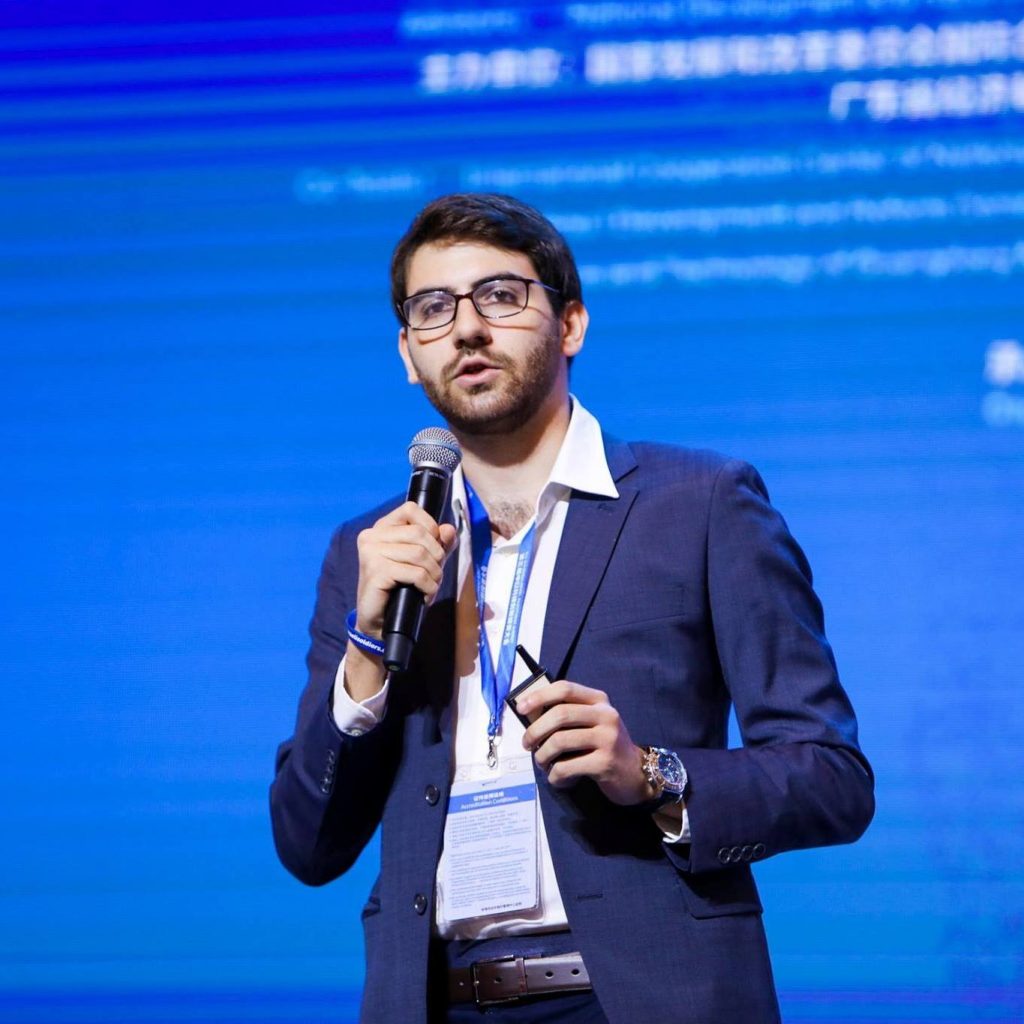
Doctors from Sheba Medical Center, Ichilov Hospital, Rambam Health Care Campus, Wolfson Medical Center, and Soroka Medical Center have already signed on to participate in this project.
“We went to the top doctors [to help start this project.] It’s amazing to see how many doctors want to donate their time,” he explains
“What Israel is best at is sharing knowledge,” Gal-Or adds.
As the medical adviser for the project, Bloch helps the Innonation team decide what kind of material they want to feature in the webinars and what doctor should share his or her expertise in the next session.
SEE ALSO: Israeli Robot System Deployed In Asia To Help Minimize Coronavirus Spread
Bloch says he is a “small part of the project” mainly dealing with technical issues and helping to publicize the webinars to a following of some 40-80 million people.
The doctors who host each session are not treating patients with the coronavirus. In fact, Bloch says they don’t even talk directly about the disease.
“We don’t for two reasons,” he explains, “First, it’s not our field. We are not coronavirus experts. Second, the Chinese government is doing very well. We don’t want to interfere. They are much more disciplined than other nations and have managed to contain the disease quite well.”

Instead, the project provides a service for people who are in isolation and want to consult on a wide range of medical topics.
Doctors conduct lectures followed by live discussions on platforms like Zoom, Facebook, and various Chinese social platforms, including Weibo, Gal-Or said. Participants can apply to watch the video and be part of the discussion. Gal-Or says that the live sessions usually accept about 100 people at most so a number of people can ask questions.
Dr. Bloch explains that the webinar is structured with a lecture first, followed by discussions and questions, because of cultural differences.
“Chinese people need to warm up before they feel comfortable enough to ask questions,” he says.
Sign up for our free weekly newsletter
SubscribeTopics, which are selected by the audience, tackle the less obvious aspects of dealing with coronavirus such as diet, pregnancy, dermatology (sensitivity resulting from wearing a protective mask), psychology (anxiety), and signs of serious illness that require emergency treatment.
Bloch, a pediatrician who has yet to host his own webinar, but “would look forward to it,” says the sessions include topics like what to do with children in quarantine, how to maintain fixed schedules, and how to keep up proper computer screen time while in quarantine.
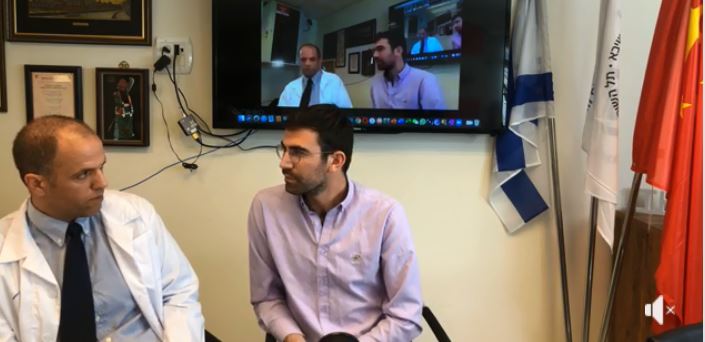
There are also questions on how to explain the coronavirus to children and the need for quarantines. Or how to deal with a child’s cut, infection, or fever while in quarantine. And how to decide whether a condition is serious enough to go to a hospital.
Following a successful pilot at Innonation’s headquarters in Tel Aviv, the company began to operate broadcast stations at all the participating hospitals in February.
“We want to provide real support to people who are stressed — mental support, practical medical support — this is the best contribution that we can give,” Gal-Or said in an earlier statement sent out by Innonation.
“The health systems in countries affected by the Coronavirus are under tremendous pressure. They find it difficult to deal with the medical needs of people living under quarantine and with the general population that fears going to clinics and hospitals,” he added. “This Israeli volunteer initiative will provide them with the necessary know-how to deal with the daily medical difficulties that currently are not being met.
During one of the pilot broadcasts, Dr. Rachel Libenson Vansh, a primary care doctor at the Clalit Health Fund, discussed tips for safeguarding one’s health during confinement to the home and how to guarantee proper hygiene.
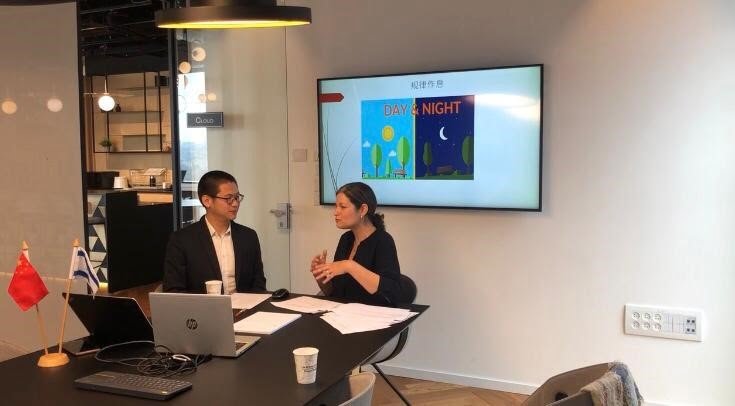
While Innonation’s social project is geared toward people in China, the webinars will soon go live in Japan, South Korea, Italy, the US, and dozens of other countries currently experiencing quarantines, says Gal-Or.
After live discussions — also broadcast on Innonation’s Facebook account — edited videos are made available to all viewers.
Gal-Or says they are confident “that these videos will reach hundreds of thousands.”
The latest coronavirus webinar took place on March 11, hosted by Dr. Moshe Ashekanzi, a pediatric pulmonologist at Sheba Medical Center. It covered the topic of pediatric asthma. It was followed by a webinar on acute and chronic diseases with Dr. Eyal Leshem, director of the Center for Travel Medicine and Tropic Diseases at Sheba.
Coronavirus crisis
There are now over 121,000 confirmed cases of the novel coronavirus across 118 countries and territories worldwide, with more than 4,200 deaths, mostly in mainland China, as of March 11
China has placed an estimated 45 million people in quarantine by early February– the largest in human history — with other countries, like Israel, beginning to issue home or hospitalized quarantines for travelers and citizens returning from certain regions.
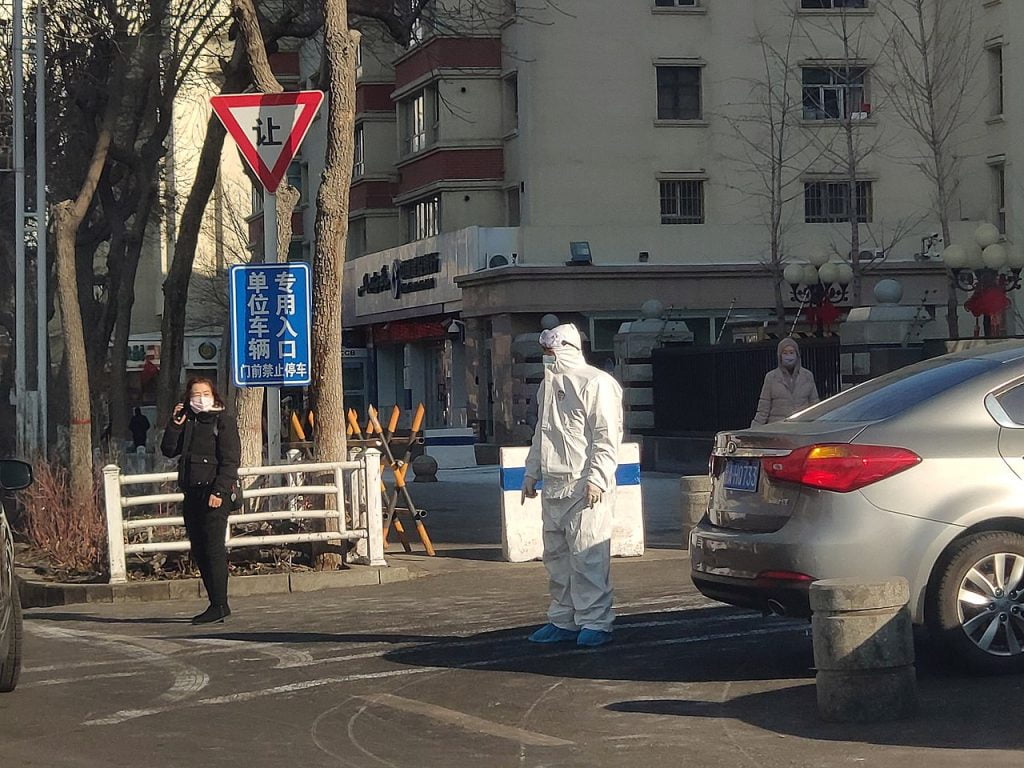
Israel currently has at least 76 people who have tested positive for COVID-19, the diseases caused by the novel coronavirus, including a nine-year-old child. On Tuesday, the country saw its largest single-day spike of cases since the crisis began.
At least 80,000 more are reported to be in self-quarantine at their homes across the country after having traveled to countries with high rates of infection or coming into contact with someone believed to have contracted the disease.
Israeli police and the Health Ministry said Tuesday that they have set up joint task forces to prevent the spread of the virus and will enforce the quarantine in compliance with the ministry’s guidelines.
The Health Ministry on Tuesday also expanded its restrictions, banning community events of more than 2,000 people. Previously, the ministry allowed up to 5,000 people to gather.
Earlier this week, the Health Ministry issued new directives to all travelers arriving in Israel, ordering them to self-quarantine for 14 days following their arrival.
Israel previously issued directives to residents returning from mainland China, Hong Kong, Macau, Singapore Thailand, Japan, and Italy as well as Germany, France, Spain, Austria, and Switzerland. The country also turned away non-residents traveling from Italy, Japan, South Korea, and Thailand.
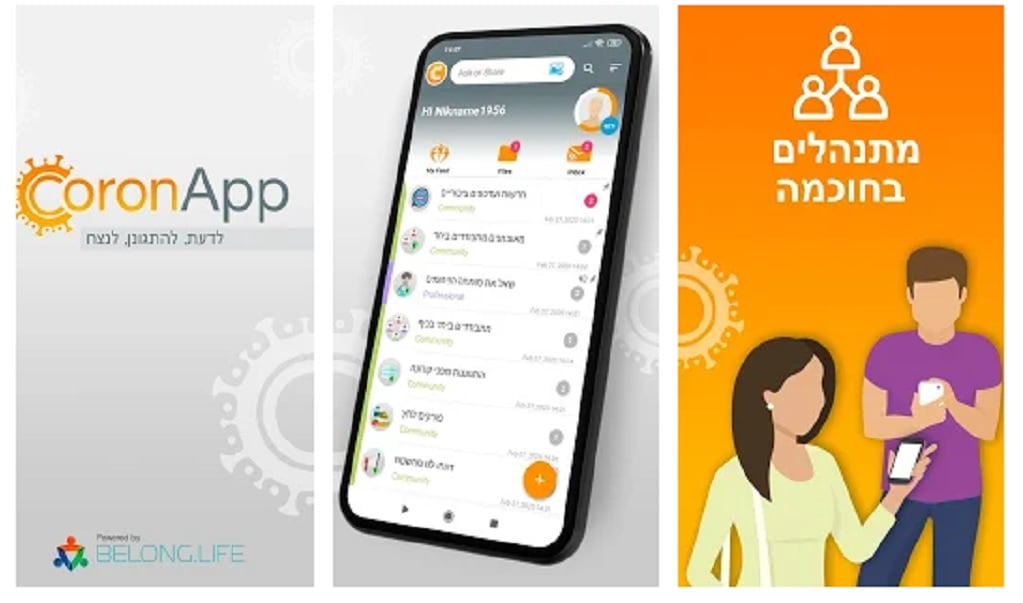
The ministry also recently announced the launch of a new smartphone app (mainly in Hebrew) that would provide Israelis with new information and health guidelines regarding the novel coronavirus and its spread in the country.
The ministry said that the CoronApp will issue announcements and updates straight from its offices, report on the virus’ spread and residents’ exposure, allow people to report for self-quarantine and receive instructions and guidance and benefit from community support.
Related posts

Rehabilitation Nation: Israeli Innovation On Road To Healing

Israeli High-Tech Sector 'Still Good' Despite Year Of War


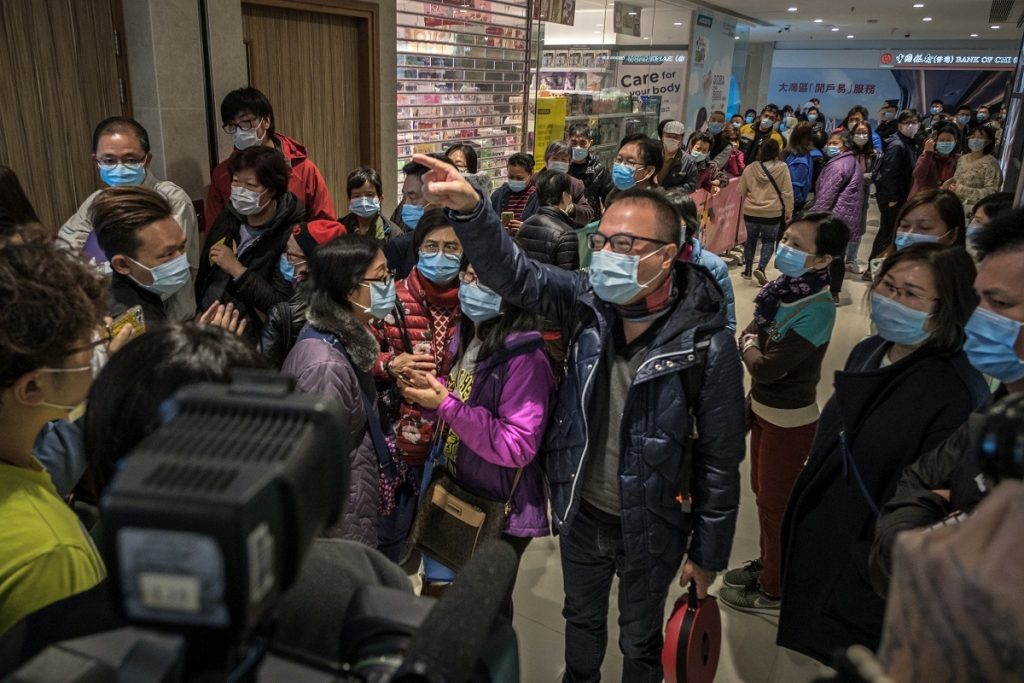


Facebook comments